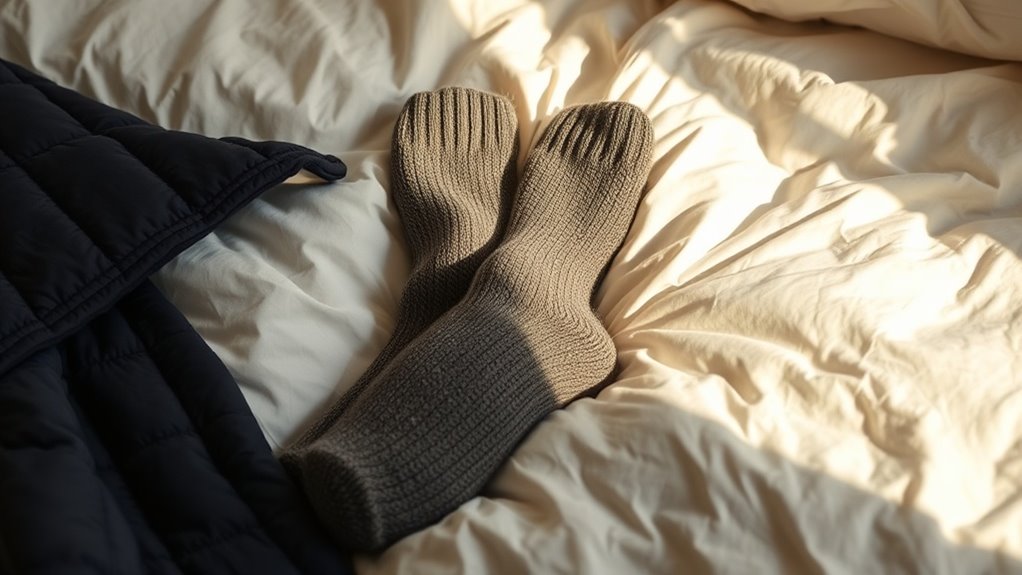The Secret Remedy for Restless Legs That No One Talks About!
If you’re struggling with restless legs syndrome, you might feel like you’ve tried everything. But have you considered the secret remedy that often gets overlooked? Mindfulness meditation can play a crucial role in alleviating those pesky symptoms. By addressing anxiety and stress, you might find a surprising sense of relief. Curious about how this simple practice can fit into your routine and complement other strategies? Let’s explore further.
Understanding Restless Legs Syndrome
Understanding Restless Legs Syndrome (RLS) can be crucial for finding relief, especially if you often feel an uncontrollable urge to move your legs. You’re not alone in this struggle, and discovering effective restless leg remedies can make a significant difference.
Many find comfort in simple lifestyle changes like regular exercise, maintaining a consistent sleep schedule, or even trying relaxation techniques. Additionally, certain dietary adjustments, such as reducing caffeine and alcohol intake, can help too. Incorporating foods rich in iron into your diet may also alleviate symptoms and improve overall well-being. Engaging in regular physical activity is essential, as it not only improves circulation but also helps to release tension that may contribute to RLS discomfort. For many individuals, targeted muscle stretches before bedtime can provide immediate relief and enhance sleep quality.
Common Triggers for Restless Legs
While many find relief from Restless Legs Syndrome through lifestyle changes, certain triggers can exacerbate the symptoms. Caffeine is a common culprit, often sneaking into your daily routine through coffee or soda.
Alcohol can also intensify sensations, making it harder to relax. Stress plays a significant role too; when life gets overwhelming, your legs might remind you.
Additionally, hormonal changes, especially during menstruation or menopause, can lead to flare-ups. Recognizing triggers is crucial for relief, as it empowers you to make informed choices in managing your symptoms. Pay attention to these triggers, and you’ll be better equipped to manage your symptoms.
You’re not alone in this journey—many share similar experiences, and together, we can find solutions.
The Power of Magnesium
If you’re struggling with restless legs, you might be surprised to learn how powerful magnesium can be in easing your symptoms. This essential mineral helps regulate nerve and muscle function, promoting relaxation.
By ensuring you get enough magnesium, you could experience less discomfort and improved sleep. Foods rich in magnesium, like leafy greens, nuts, and whole grains, can easily fit into your diet.
You might even consider magnesium supplements, but it’s best to consult a healthcare provider first. Embracing magnesium as part of your routine mightn’t only soothe your restless legs but also help you feel more connected to your well-being.
Herbal Remedies to Consider
In addition to magnesium, exploring herbal remedies can offer another layer of relief for restless legs. You might find that valerian root helps soothe your muscles, while passionflower can calm your mind. Try incorporating a cup of chamomile tea into your evening routine, as it promotes relaxation. Don’t overlook the potential benefits of ginger and turmeric, which can reduce inflammation and improve circulation. Additionally, herbal blends like Ashwagandha can further enhance your sleep quality and overall comfort. Furthermore, incorporating mindfulness techniques may also help to reduce stress and promote relaxation, which can be beneficial for managing restless legs.
The Role of Sleep Hygiene
Establishing good sleep hygiene is crucial for managing restless legs, as it creates an environment that promotes restful sleep.
Start by setting a consistent sleep schedule, going to bed and waking up at the same time daily. Create a calming bedtime routine; dim the lights, read a book, or practice relaxation techniques.
Make your bedroom a sanctuary—keep it cool, dark, and quiet. Limit screen time before bed to reduce stimulation.
The Importance of Hydration
Staying properly hydrated is essential for managing restless legs syndrome and can make a significant difference in your comfort. When you drink enough water, your body functions better, reducing muscle cramps and discomfort.
It’s easy to underestimate hydration, but even mild dehydration can trigger those restless feelings. Join a community that values wellness and support; share your hydration goals with friends or family. Remember, you’re not alone in this journey.
So, keep a water bottle handy, set reminders, and make hydration a priority. You’ll feel more connected to your body and improve your overall well-being.
Cheers to better days ahead!
Gentle Exercise and Stretching
While you may not think of exercise as a remedy for restless legs, incorporating gentle movements and stretching into your routine can significantly alleviate symptoms. Engaging in regular low-impact activities can help manage RLS symptoms effectively. You don’t have to commit to intense workouts—simple, low-impact activities can make a difference. Here are some easy exercises to try:
- Leg swings: Stand and gently swing one leg forward and backward.
- Calf stretches: Lean against a wall and push your heel down to stretch.
- Ankle circles: Sit and rotate your ankles to enhance flexibility.
- Hamstring stretches: Reach for your toes while seated to loosen tight muscles. These gentle movements can also improve blood flow to the legs, which is essential for reducing discomfort.
Engaging in these gentle exercises can improve circulation and enhance comfort, making them an essential part of your self-care!
Dietary Changes for Relief
Making dietary changes can play a crucial role in managing restless legs syndrome. You might find relief by incorporating iron-rich foods like spinach, lentils, and red meat into your meals.
Don’t forget about magnesium, found in nuts and whole grains, which can help relax your muscles. Staying hydrated is essential, so drink plenty of water throughout the day.
Additionally, limit caffeine and alcohol, as they can worsen symptoms. By embracing these dietary adjustments, you can connect with others who share similar experiences, creating a supportive community while working towards calmer nights and more restful legs.
You’re not alone in this journey!
Stress Management Techniques
Dietary changes can significantly improve your overall well-being, but you shouldn’t overlook the impact of stress on restless legs syndrome.
Managing stress is essential for finding relief. Here are some effective techniques you can try:
-
Deep Breathing: Take a few moments to focus on your breath, inhaling deeply and exhaling slowly. Practicing 4-7-8 breathing can activate the body’s relaxation response and help reduce anxiety.
-
Mindfulness Meditation: Set aside time each day to meditate and bring your awareness to the present. Research shows that mind-body techniques can effectively calm the mind and body, promoting relaxation.
-
Regular Exercise: Engage in moderate physical activity to release endorphins and reduce anxiety.
-
Connect with Others: Share your feelings with friends or join a support group to foster a sense of belonging.
Additionally, incorporating stress-reduction techniques like meditation or gentle yoga can further alleviate anxiety and improve your overall well-being.
When to Seek Professional Help
Have you been struggling with restless legs despite trying various remedies? It might be time to seek professional help.
If your symptoms are severe, persistent, or disrupting your sleep, don’t hesitate to reach out to a healthcare provider. They can assess your situation and rule out underlying conditions.
It’s important to know you’re not alone—many people face similar challenges. A doctor can offer tailored solutions, including medication or therapy options, to help you find relief.






